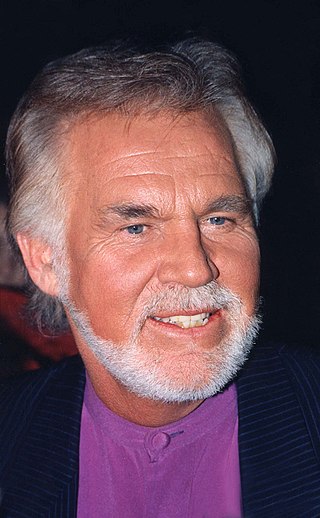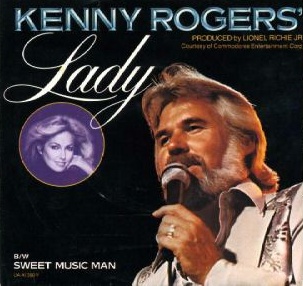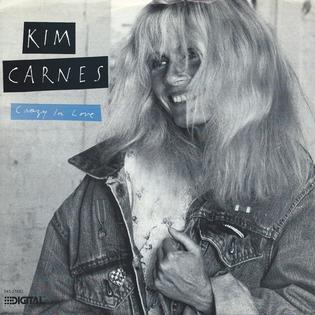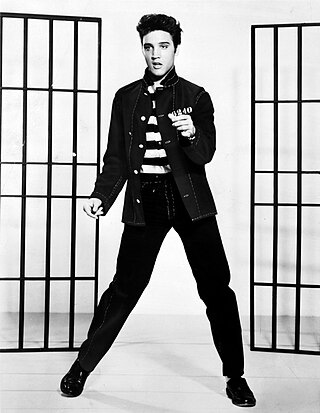
Doo-wop is a genre of rhythm and blues music that originated in African-American communities during the 1940s, mainly in the large cities of the United States, including New York, Philadelphia, Pittsburgh, Chicago, Baltimore, Newark, Detroit, Washington, D.C., and Los Angeles. It features vocal group harmony that carries an engaging melodic line to a simple beat with little or no instrumentation. Lyrics are simple, usually about love, sung by a lead vocal over background vocals, and often featuring, in the bridge, a melodramatically heartfelt recitative addressed to the beloved. Harmonic singing of nonsense syllables is a common characteristic of these songs. Gaining popularity in the 1950s, doo-wop was "artistically and commercially viable" until the early 1960s, but continued to influence performers in other genres.

The Moonglows were an American R&B group in the 1950s. Their song "Sincerely" went to number 1 on the Billboard R&B chart and number 20 on the Billboard Juke Box chart.

Kenneth Ray Rogers was an American singer and songwriter. He was inducted into the Country Music Hall of Fame in 2013. Rogers was particularly popular with country audiences but also charted more than 120 hit singles across various genres, topping the country and pop album charts for more than 200 individual weeks in the United States alone. He sold more than 100 million records worldwide during his lifetime, making him one of the best-selling music artists of all time. His fame and career spanned multiple genres: jazz, folk, pop, rock, and country. He remade his career and was one of the most successful cross-over artists of all time.

The Manhattans are an American popular R&B vocal group. Their songs "Kiss and Say Goodbye", recorded in 1976, and 1980's "Shining Star", both sold millions of copies. The Manhattans have recorded 45 hits on the Billboard R&B Chart, including twelve top-10 R&B hits in the United States, starting in 1965. Sixteen of their songs have reached the Billboard Hot 100, including two top 10s and a number-one hit with their song "Kiss and Say Goodbye". They also charted eight U.S. R&B top 20 Albums, three of which were RIAA certified gold.

"Islands in the Stream" is a song written by the Bee Gees and recorded by American country music artists Kenny Rogers and Dolly Parton. Named after an Ernest Hemingway novel, it was released in August 1983 as the first single from Rogers's album Eyes That See in the Dark. The song was originally written for Diana Ross in an R&B style but later reworked for the duet by Rogers and Parton. The Bee Gees released a live version of the song in 1998 and a studio version in 2001.
"Ruby, Don't Take Your Love to Town" is a song written by Mel Tillis about a paralyzed veteran who lies helplessly as his wife "paints [herself] up" to go out for the evening without him; he believes she is going in search of a lover. As he hears the door slam behind her, he claims that he would murder her if he could move to get his gun, and pleads for her to reconsider. A line in the song about a "crazy Asian war" and the time of the song's release led to the assumption the song was about a veteran of the Vietnam War, though this was never stated in the lyrics. However, Tillis stated that the song was about a veteran of World War II.

"Doo Wop (That Thing)" is a song recorded by American recording artist Lauryn Hill for her debut solo studio album The Miseducation of Lauryn Hill (1998). It was written and produced by Hill. The song was released as the lead single from The Miseducation of Lauryn Hill on August 10, 1998, by Ruffhouse Records and Columbia Records. No commercial release was originally intended for the single in the US, but limited-quantity physical formats were issued two months later, on October 27.

"Since I Don't Have You" is a song written and composed by Jackie Taylor, James Beaumont, Janet Vogel, Joseph Rock, Joe Verscharen, Lennie Martin, and Wally Lester. It was first a 1958 hit single for the doo-wop group the Skyliners on the Billboard Hot 100. Country music singer Ronnie Milsap had a hit with the song in 1991. American hard rock band Guns N' Roses also had some success in 1994 with their version of the song which reached the top 10 on the UK Singles Chart.

"In the Still of the Nite", also subsequently titled "In the Still of the Night", is a song written by Fred Parris and recorded by his band the Five Satins. Originally the song was titled "(I'll Remember) In the Still of the Nite" to distinguish itself from Cole Porter's "In the Still of the Night". Later the title was changed to "In the Still of the Night".

"We've Got Tonite" is a song written by American rock music artist Bob Seger, from his album Stranger in Town (1978). The single record charted twice for Seger, and was developed from a prior song that he had written. Further versions charted in 1983 for Kenny Rogers as a duet with Sheena Easton, and again in 2002 for Ronan Keating.

Greatest Hits is the second compilation album by country music superstar Kenny Rogers. It was released in September 1980 and issued by Liberty Records. The album marks Rogers' first release after United Artists Group merged with Liberty. The album has achieved diamond certification.

"Through the Years" is a song written by Steve Dorff and Marty Panzer, and recorded by American country music artist Kenny Rogers. It was released in December 1981 as the fourth single from the album Share Your Love.

"Da Doo Ron Ron" is a song written by Jeff Barry, Ellie Greenwich and Phil Spector. It first became a popular top five hit single for the American girl group the Crystals in 1963. American teen idol Shaun Cassidy recorded the song in 1977 and his version hit number one on the Billboard Hot 100 chart. There have also been many other cover versions of this song, including one by the songwriters Jeff Barry and Ellie Greenwich themselves, performing as the Raindrops.

"Lady" is a song written by Lionel Richie and first recorded by American country music artist Kenny Rogers. It was released in September 1980 on the album Kenny Rogers' Greatest Hits.
Gerald Granahan was an American singer, songwriter, and record producer, best known for his work in the 1950s and 1960s.
The Quin-Tones were an American doo wop group from York, Pennsylvania, United States. They had one hit record, "Down the Aisle of Love" (1958).
"Bad Girl" is a 1959 doo-wop single by The Miracles. Issued locally on the Motown Records label, it was licensed to and issued nationally by Chess Records because the fledgling Motown Record Corporation did not, at that time, have national distribution. It was the first single released on the Motown label – all previous singles from the company were released on Motown's Tamla label. Although The Miracles had charted regionally and on the R&B charts with several earlier songs, including "Got a Job", "I Cry", "I Need a Change", and "(You Can) Depend on Me", "Bad Girl" was their first national chart hit, reaching #93 on the Billboard Hot 100. Written by Miracles lead singer Smokey Robinson and Motown Records' President and Founder Berry Gordy, "Bad Girl" is a sad, remorseful ballad about a young woman, whom Robinson, as the narrator, says "was so good at the start", but who later in the song "is breaking my heart". It is in the popular doo-wop style, as several of The Miracles' songs were during the late 1950s. The record's success, coupled with the distributor's failure to pay Gordy and The Miracles properly for its sales, prompted Robinson to urge Gordy to "go national" with it, meaning that Motown should do its own national distribution of its songs, and eliminate the middleman, to ensure that all money from sales of its records would go directly to the label.

Doo-Wops & Hooligans is the debut studio album by American singer-songwriter Bruno Mars. It was released on October 4, 2010, by Atlantic and Elektra Records and was made available to listen before its official release on September 24, 2010. After the release of the EP It's Better If You Don't Understand, Mars's writing and production team, the Smeezingtons, began working on the album with Needlz, Supa Dups and Jeff Bhasker as producers. The album title was chosen to reflect simplicity and appeal to males and females.

"Crazy in Love" is a song by songwriters Even Stevens and Randy McCormick; it was first recorded by Joe Cocker on his 1984 album Civilized Man. The song was covered by American pop artist Kim Carnes in 1988 and released as the second single from her album View from the House. Carnes' version peaked at number 13 on the Billboard Adult Contemporary chart and number 68 on the Billboard Hot Country Singles & Tracks chart.

The singles discography of Elvis Presley began in 1954 with the release of his first commercial single, "That's All Right". Following his regional success with Sun Records, Presley was signed to RCA Victor on November 20, 1955. Presley's first single with RCA, "Heartbreak Hotel", was a worldwide hit, reaching the No. 1 position in four countries and the top 10 in many other countries. Other hit singles from the 1950s include "Hound Dog", "Don't Be Cruel", "Love Me Tender", Too Much", "All Shook Up", "(Let Me Be Your) Teddy Bear", "Jailhouse Rock", "Don't", "Hard Headed Woman" and "A Big Hunk o' Love". On March 24, 1958, Presley entered the United States Army at Memphis, Tennessee, and was stationed in Germany. He left active duty on March 5, 1960.















